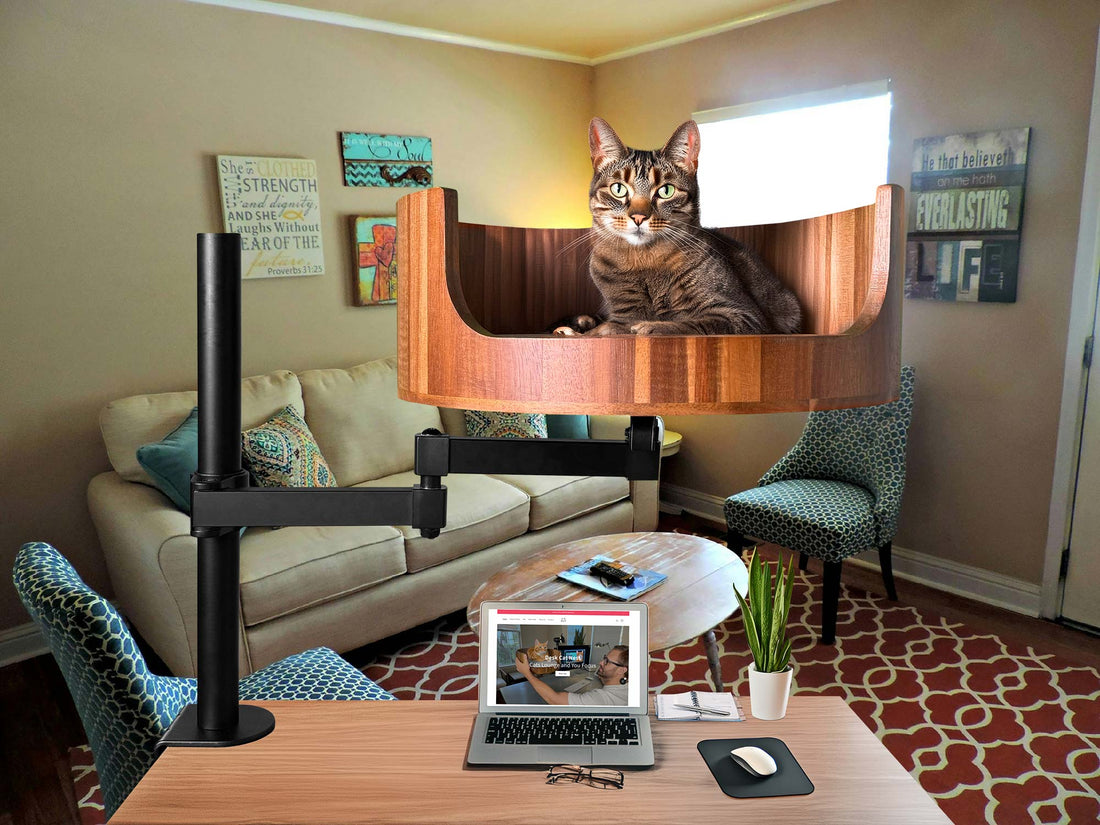
Why Does My Cat Yell So Much? Understanding Feline Behavior
Share
Have you ever wondered why your cat seems to be constantly yelling for attention? If so, you're not alone. Many cat owners experience their feline friends making a lot of noise, and it can be puzzling trying to understand the reasons behind this behavior. In this article, we will explore the various factors that may contribute to why your cat yells so much, shedding light on the intricacies of feline communication and behavior.
From territorial instincts to health issues, there are several possible explanations for why your cat may be vocalizing more than usual. By delving into the world of cat behavior, we can gain a better understanding of our furry companions and learn how to effectively communicate and bond with them. With insights from experts in the field of animal behavior, as well as practical tips for cat owners, this article aims to provide valuable information for anyone looking to decipher the mystery behind their cat's incessant meowing.
1. Cats may yell excessively due to underlying health issues, stress, or loneliness.
2. Understanding a cat's vocalizations and behavior can help identify the root cause of excessive yelling.
3. Providing mental and physical stimulation, as well as a safe and comfortable environment, can help reduce excessive meowing.
4. Regular veterinary check-ups are crucial to rule out any medical reasons for a cat's excessive vocalizations.
5. Building a strong bond with your cat through interactive play, affection, and attention can help address and prevent excessive yelling.
Causes of Excessive Vocalization in Cats
Excessive vocalization in cats can be attributed to various factors such as stress, anxiety, boredom, illness, or even breed tendencies. Cats may yell or meow more than usual when they are trying to communicate their needs or emotions. Stress and anxiety can be caused by changes in the environment, such as moving to a new home or the introduction of a new pet. Illnesses like hyperthyroidism or dental issues can also lead to increased vocalization in cats. Some breeds, like Siamese cats, are known for being more vocal than others due to their genetics.
How to Address Excessive Vocalization in Cats
To address excessive vocalization in cats, it is important to first rule out any medical conditions by taking your cat to the vet for a check-up. If no underlying health issues are found, it may be necessary to address the cat's environment and mental well-being. Providing enough mental and physical stimulation through playtime, interactive toys, and scratching posts can help reduce boredom and anxiety in cats. Creating a routine for feeding and playtime can also help establish a sense of security for your cat. Additionally, using positive reinforcement training to reward quiet behavior can encourage your cat to meow less frequently.
Case Study: Daisy the Siamese Cat
Daisy, a Siamese cat, was known for her excessive vocalization even when her owner was home. After ruling out any medical issues, Daisy's owner decided to create a routine for playtime and feeding and provide her with interactive toys to keep her stimulated. By rewarding Daisy for quiet behavior and ignoring her when she meowed excessively, her owner was able to reduce her vocalization significantly over time. Daisy's case demonstrates the importance of addressing the underlying causes of excessive vocalization and implementing positive reinforcement techniques to modify feline behavior.
Frequently Asked Questions
Why does my cat yell so much?
There are many reasons why a cat may vocalize frequently. These reasons can include hunger, attention seeking, discomfort, illness, or just simply wanting to communicate with you. It's important to observe your cat's behavior and consult with a veterinarian if you believe there may be an underlying health issue.
How can the Desk Cat Nest help with my cat's excessive yelling?
The Desk Cat Nest provides a cozy and secure space for your cat to relax and feel safe. By having their own designated area, your cat may feel more comfortable and secure, which can help reduce excessive vocalization. Additionally, the Desk Cat Nest can help provide enrichment and stimulation to keep your cat mentally and physically engaged.
Will the Desk Cat Nest fit on my desk?
The Desk Cat Nest is designed to fit most standard desks and workspaces. Its compact size allows it to conveniently sit on top of your desk without taking up too much space. However, we recommend measuring your desk space before purchasing to ensure that the Desk Cat Nest will fit comfortably.
Is the Desk Cat Nest easy to clean?
Yes, the Desk Cat Nest is made with durable and easy-to-clean materials, making it simple to maintain and keep clean. You can easily spot clean any messes or spills, and the removable cushion makes it easy to wash when needed.
In conclusion, providing your cat with a Desk Cat Bed can greatly help address their excessive yelling. This comfortable and cozy bed offers a safe and secure space for your cat to relax and feel at ease, reducing their stress and anxiety levels. By giving your feline companion a designated spot to rest and unwind, you can help alleviate their need to constantly vocalize their feelings. Investing in a Desk Cat Bed is a valuable choice that can greatly improve your cat's overall well-being and lead to a more peaceful and harmonious relationship with your furry friend.



















































